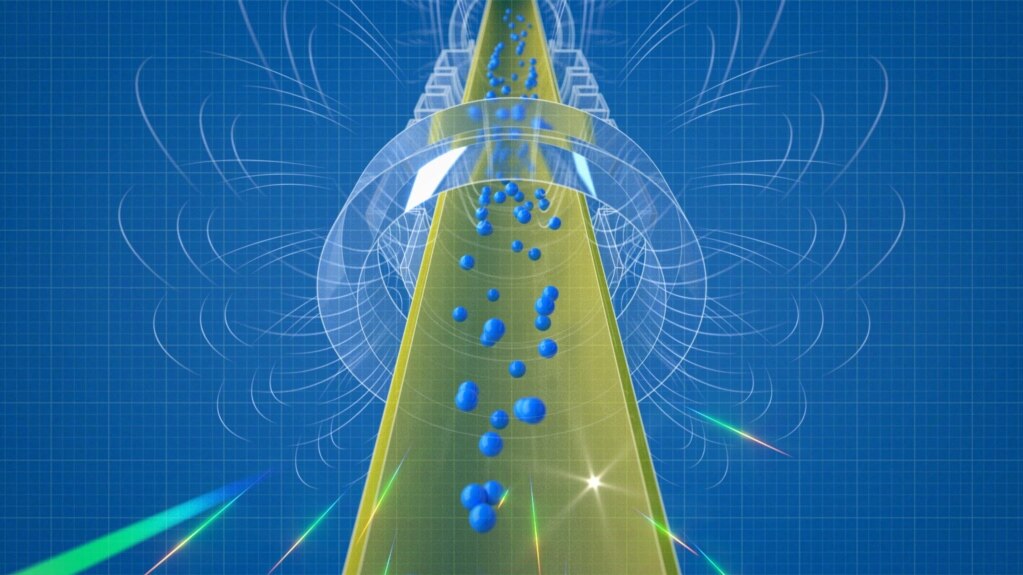Scientists say that for the first time, they have observed the effects of gravity on antimatter.
Matter includes all the things we can see around us. Antimatter is thought to mirror all forms of normal matter. But antimatter has the opposite electrical charge and magnetic properties as matter, the U.S. Department of Energy explains.
Antimatter remains a mysterious substance. Scientists believe it is as old as the universe itself. Current scientific theories suggest that about 13.8 billion years ago, the Big Bang event created an equal amount of matter and antimatter. The Big Bang is the explosion many scientists believe created the universe.
But scientists say there appears to be very little antimatter in the universe today, with almost none on Earth. "Half the universe is missing," said Jeffrey Hangst, a member of the experimental team.
The antimatter observation was carried out at the European Center for Nuclear Research (CERN) near Geneva, Switzerland. The researchers were part of the international Antihydrogen Laser Physics Apparatus (ALPHA) project. CERN says the ALPHA group was formed to carry out experiments on antimatter.
ALPHA’s work involves making, capturing and studying antihydrogen atoms. The goal of the center is to learn more about the mysterious properties of antimatter.
The researchers wanted to find out whether gravity caused antimatter to fall towards the center of the Earth in the same way as normal matter. This idea agrees with physicist Albert Einstein’s General Theory of Relativity. This theory proposed that gravity is caused by a curving of space and time.
Scientists at CERN first produced antimatter in 1996 in an experiment that created antihydrogen.
To study gravity's effect on antimatter in the laboratory, the ALPHA team built a 25-centimeter-long container placed on its end, with magnets at the top and bottom. Then, scientists placed about 100 very cold hydrogen atoms into the “magnetic trap.”
During the experiment, researchers said the antihydrogen particles were moving around at a speed of about 100 meters a second. When the strength of the magnets was reduced, the particles were able to escape the container.
The scientists said their result demonstrates that gravity causes antimatter to fall toward the center of the Earth. The researchers carried out several experiments that they said confirmed their findings.
Hangst, who leads operations at ALPHA, spoke to the French news agency AFP. He said that the research ruled out that gravity pushes antihydrogen away from the center of the Earth. But, he added, it does not prove that antimatter behaves exactly the same way as normal matter. Hangst said his team plans to carry out more experiments to learn more about other behaviors of antimatter.
Marco Gersabeck is a physicist who works at CERN but was not involved in the ALPHA research. He told AFP he sees the findings as "a huge milestone" in antimatter studies. But he added it marks just the beginning of deeper research efforts on gravity's effect on antimatter.
Other attempts to better understand antimatter include using CERN's Large Hadron Collider to investigate unusual particles called “beauty quarks.” And there is an experiment on the International Space Station that seeks to catch antimatter in cosmic rays.
I’m Bryan Lynn.

